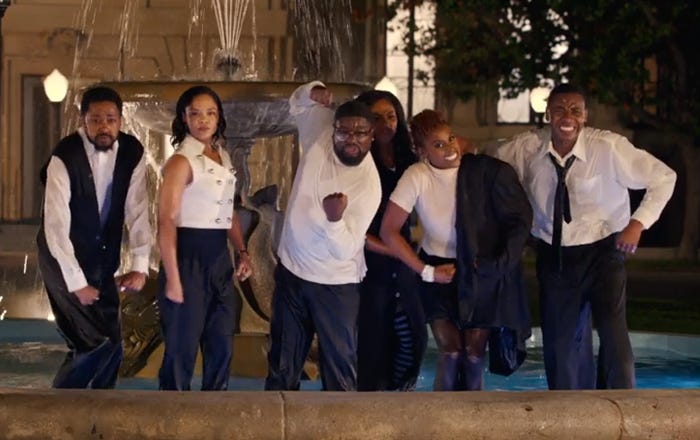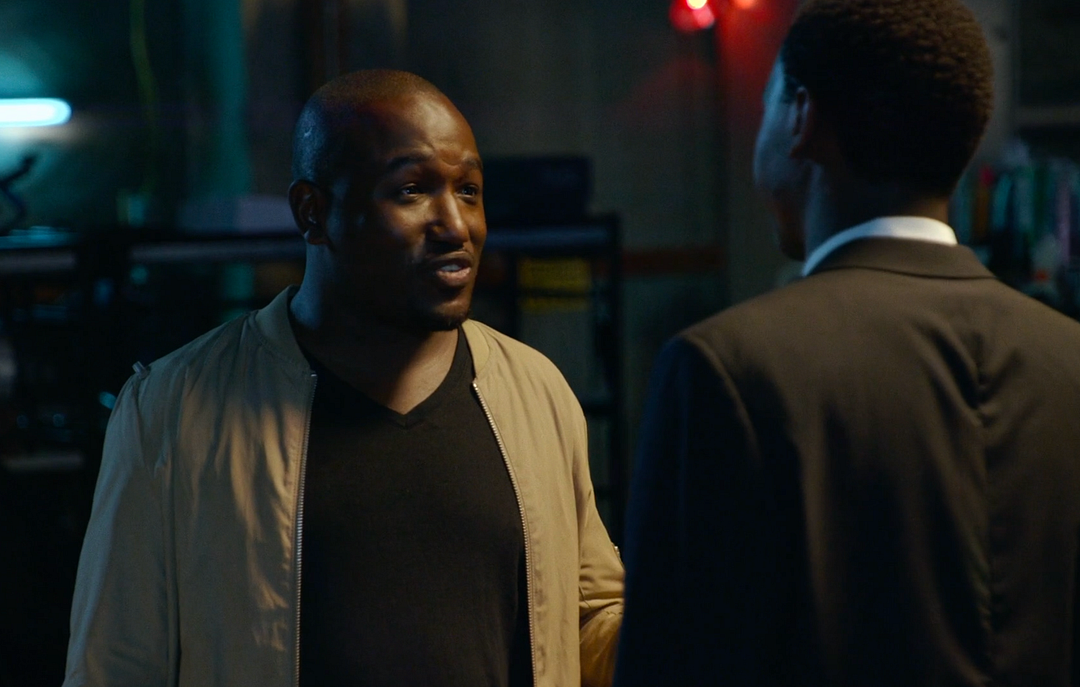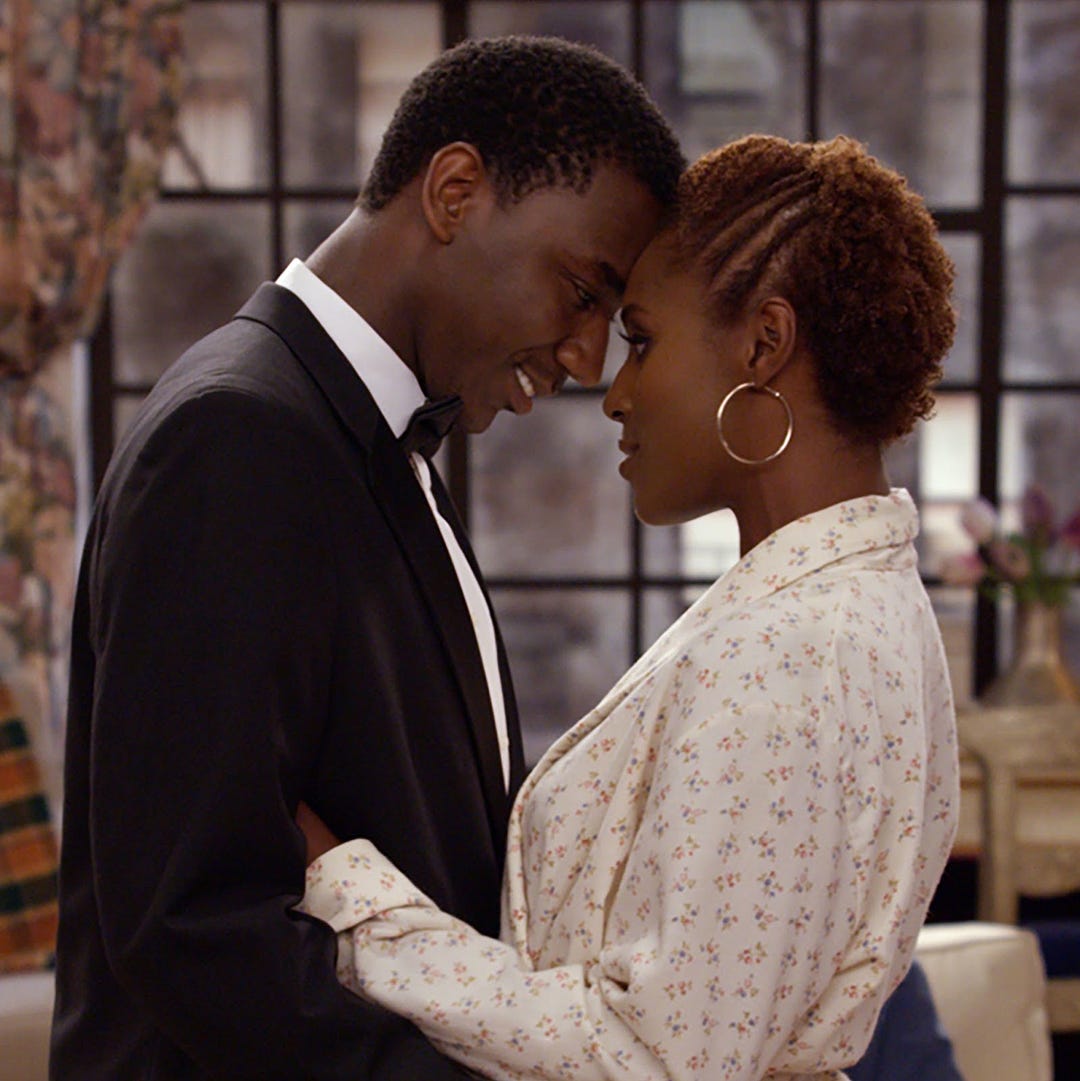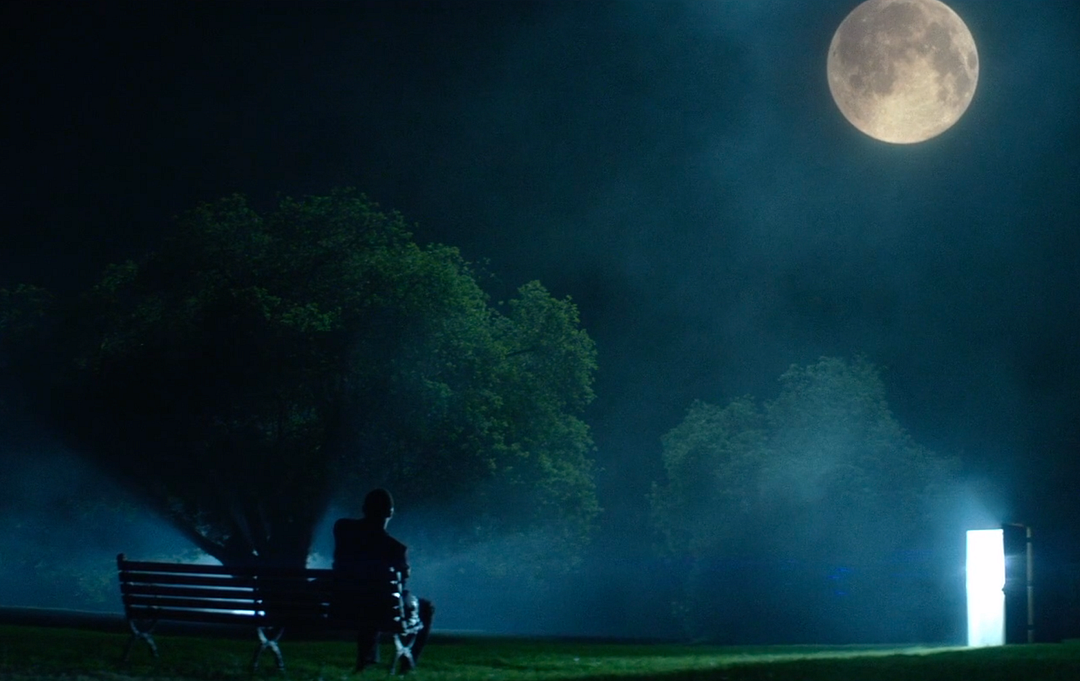This content has been archived. It may no longer be relevant

“We stuck in La La Land; even when we win, we gon lose,” Jay-Z sings frustratedly over the chorus of “Moonlight,” a standout track on his latest album, 4:44. The song is inspired by the 2016 film of the same name that almost got it’s Oscar award taken away on stage due to a misreading of the card. While the misstep was rectified after a few moments of confusion and premature celebration from the creators of La La Land, many pointed out the unfortunate circumstance of a black centered film having to share its big moment with another —
predominately white film. Jay-Z reflects that sentiment in his upbeat but ominous track.
Jay continues the theme of Black creators being overshadowed by their white counterparts in his music video for the song. The video starts off as a shot-for-shot scene from an episode of the well-known sitcom Friends, but with all Black actors. Jerrod Carmichael, Issa Rae and a slew of other contemporary black celebs trade lines to a generic laugh track until Carmichael drops character and wanders off the set. In the next scene, Carmichael is seen on a park bench where he sits and stares at the full moon as an audio recording of the Oscar blunder plays in the background.

On its face, “Moonlight” seems like a very unapologetic critique on the position black creators often find themselves in when trying to make a way for themselves in the media — a cutthroat industry where their skin either makes them a hot commodity or a liability. However, there is a glaringly absent factor missing from the equation.
The film Moonlight tells the coming-of-age story of Chiron, a young Black man from the streets of Miami. While the film touches on the ever-changing parameters of black masculinity, as well as the exploration of black male vulnerability, it also emphasizes the special intimacy the protagonist shares with Kevin — his childhood best friend. Chiron struggles his entire life due to the pressure of constantly being forced to perform masculinity in the way the world expects him to.
Now the film does not have to be read as a strictly queer movie. All Black men have struggled with masculinity throughout their lives, and this film definitely speaks to that inner conflict. However, the element of male intimacy in Moonlight cannot be ignored. The writer of the screenplay from which this film is adapted is an openly gay man.
So why is there no mention of queer Black people and the adversity they face in Jay-Z’s song or music video?

Ironically, Jay-Z has revealed his support of LGBTQ rights on the exact same album he featured “Moonlight.” On the track “Smile,” he illustrates — in great detail the struggles his own mother faced when she was still a closeted lesbian. Jay has also collaborated numerous times with openly queer artist Frank Ocean, with Frank also being featured on 4:44. So what was stopping him from centering queer Black people in the music video? It shouldn’t have been much of a stretch to include such an intersectionally diverse cast, one that centered a criminally underrepresented part of the black community. This oversight also speaks to the hesitance of black mainstream artists to embrace male queerness in the same way it does for women.
Last year, no one could turn their radio on without the self-proclaimed stud Young M.A. “ooooooou”-ing in their ear. Young M.A. is very much openly queer, but her identity lines up neatly with the already well-established idea of black masculinity. The average straight man has no problem singing along to lines like “damn she make me weak when she deep throat,” but it’d be another story if he were rapping about another man backing it up on him. There’s still a widely held belief that men who sleep with other men, (especially in a bottom or sub-position) are considered feminine and ultimately disposable. The film Moonlight depicts a big, broad-shouldered, undeniably black man, who visually fits every aching cliche of black men in America. However, despite these cliches, Chiron still has an unorthodox soft spot for his childhood friend. The film illustrates that not all queer men are feminine — they can also be masculine, while still being as flagrant with their emotions as femme men are stereotyped to be.

In the constant fight for black liberation, it’s not uncommon for heterosexual, cisgender black people to not only sideline black queer voices, but benefit from their time and effort while doing so. Openly gay Bayard Rustin was the chief organizer for the March On Washington, the event in which Dr. Martin Luther King Jr. delivered his famous “I Have A Dream” Speech, and was often demonized by conservative black politicians. James Baldwin, a prolific black queer novelist and Civil Rights spokesperson, had one of his manuscripts adapted for the 2016 documentary “I Am Not Your Negro,” but there is only a brief mention of Baldwin’s sexuality within this retelling of his pro-black rhetoric. Baldwin wrote extensively about the lives of black queer individuals, but the people in charge of continuing his legacy failed to feature one of the most prominent aspects of his identity.
Jay-Z’s failure to involve any prominent Black queer figures in his project speaks to a willful ignorance that plagues many cishet people within the Black community. In a song that illustrates the frustration of Black artists, a focus on intersectionality would have elevated the work immensely. The movement for Black lives has always included queer black people, from the Black Lives Matter Movement to the African People’s Socialist Party. Intersectionality is vital in this new day and age of resistance, and the voices of queer and trans individuals need to be heard. Their work needs to be respected wholly, and not picked over in order to convey a more streamlined message.
Jay-Z’s “Moonlight” is not bad song, and it is not a bad music video. Both of them depict the universally acknowledged frustration of the black artist forced to play ball in a business that has given itself a perpetual handicap. The issue lies in the fact that a cishet black male artist took inspiration from not only a Black film, but a film that just so happened to be the first queer film to win Best Picture, and divorced an integral part of the work in order to make his piece fit a more widely accepted narrative. He didn’t really discuss the film, but rather the response the film received when juxtaposed with it’s white counterpart — and when it became time to rally behind the film race won out over sexual orientation. Too long have black queer individuals been forced to choose between their queer identity and their black one. They have a right to be included in the greater narrative with all of their intersections intact, instead of continuing to sacrifice pieces of their humanity to uplift the hetero, cisgender black man.
Jay-Z showed himself to be capable of speaking on LGBTQIA+ rights when the story was about someone close to him, so if he can also speak to all black people about building equity to combat disenfranchisement, he can speak to all black people about properly accepting their queer siblings. Moonlight is a groundbreaking piece of artwork that deserves to have all its pieces intact, and it truly deserves better than a painfully self aware re-enactment of Friends.
He really should have let Frank Ocean take this one.

Author: Lorenzo Simpson
Editor: Micah Witt
 From Pretty Little Liars to May December: Grooming in Media
From Pretty Little Liars to May December: Grooming in Media  X-Men ‘97: An Adventurous Series Filled with Nostalgia
X-Men ‘97: An Adventurous Series Filled with Nostalgia  The Disappointing Reinvention of Netflix’s Avatar: The Last Airbender
The Disappointing Reinvention of Netflix’s Avatar: The Last Airbender  Iwájú: A Triumphant Tale of Two Friends and Two Worlds
Iwájú: A Triumphant Tale of Two Friends and Two Worlds  One Day is a Wonderfully Heartbreaking Love Story
One Day is a Wonderfully Heartbreaking Love Story 